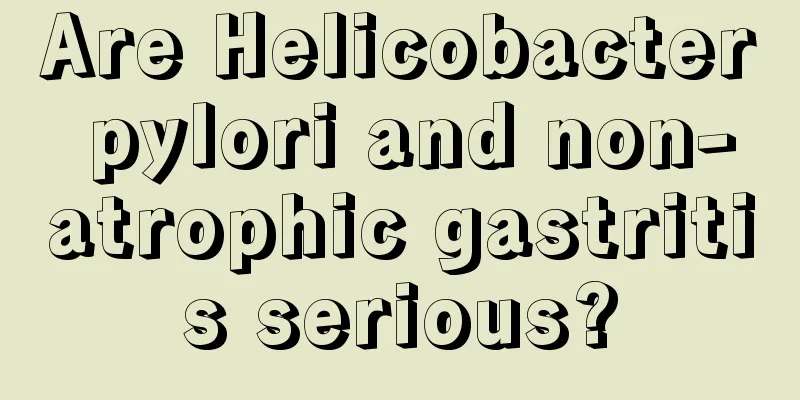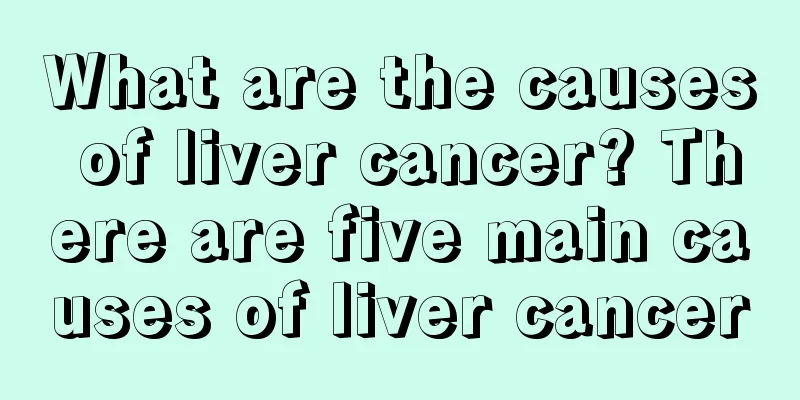Are Helicobacter pylori and non-atrophic gastritis serious?

|
Gastrointestinal diseases are very harmful and usually cause extremely uncomfortable symptoms to patients. Therefore, gastrointestinal diseases should be prevented as much as possible. If you suffer from this disease, don't panic. You just need to slowly recuperate to ensure that the condition does not change significantly. For example, Helicobacter pylori and non-atrophic gastritis are relatively common gastrointestinal diseases that have a greater impact on life. Let's take a look at whether Helicobacter pylori and non-atrophic gastritis are serious? Helicobacter pylori infection is the main cause of chronic non-atrophic gastritis. The relationship between the two meets the four basic requirements proposed by Koch for determining the pathogen as the cause of infectious diseases, namely, the pathogen exists in patients with the disease, the distribution of the pathogen is consistent with the distribution of lesions in the body, the disease can improve after the pathogen is eliminated, and the pathogen can induce diseases similar to those in humans in animal models. Clinical manifestations Most patients with chronic non-atrophic gastritis may not have any symptoms. Those with symptoms mainly present with non-specific indigestion symptoms such as upper abdominal pain or discomfort, upper abdominal distension, early satiety, belching and nausea. Patients with functional dyspepsia may or may not have chronic gastritis. After eradication of Helicobacter pylori, the histology of chronic gastritis can be significantly improved, but it cannot alleviate the dyspepsia symptoms of most patients with histological improvement, indicating that chronic gastritis is not closely related to dyspepsia symptoms. Dangers of Helicobacter pylori infection: 1. Helicobacter pylori can be the main cause of peptic ulcers such as gastritis, chronic pharyngitis, and oral ulcers. For patients with these diseases, the first priority of treatment is to eradicate Helicobacter pylori, otherwise treatment will be relatively difficult. 2. Helicobacter pylori is highly contagious and can be transmitted through hands, unclean food, unclean tableware, feces, etc., and can survive in water. Therefore, we should develop good hygiene habits in our daily diet to prevent infection. 3. Infection with Helicobacter pylori may cause bad breath, that is, bad breath. In severe cases, there is often a special bad breath that cannot be removed no matter how you clean it. |
<<: Can people with gastritis eat jujubes?
>>: Will gastritis make the whole stomach hurt?
Recommend
7 things to know when having ultrasound examination for pancreatic cancer patients
Among the examination methods for pancreatic canc...
What are the causes of testicular cancer in adults
In daily life, there may be many people who have ...
How to relieve dry eyes after waking up
Because of work reasons, especially some white-co...
Lower limb venous obstruction
Lower limb venous obstruction is a very common di...
What are the symptoms of rectal cancer
What are the symptoms of rectal cancer? Early sta...
What is the reason for increased appetite in late stage liver cancer? Introduction to treatment methods for late stage liver cancer
Patients with advanced liver cancer may experienc...
What are the effects of calcitonin?
The rapid development of modern life has led to t...
How to wash mink clothes
With the arrival of autumn and winter, the temper...
What dishes go with rice wine
Huangjiu can be drunk directly or paired with som...
The most effective way to correct X-shaped legs
X-shaped legs and O-shaped legs are mainly relate...
Is acupuncture effective in treating vertigo?
People must have experienced dizziness in their d...
What is the reason why legs are getting thinner
For people with poor body shape, many people want...
Is single-focal thyroid cancer a type?
Single-focal thyroid cancer is not a type of thyr...
What are the main symptoms of primary liver cancer? Six symptoms of primary liver cancer are very common
In fact, there are many factors that lead to prim...
Abdominal masses are usually prominent symptoms of colorectal cancer
Abdominal masses are usually prominent symptoms o...









